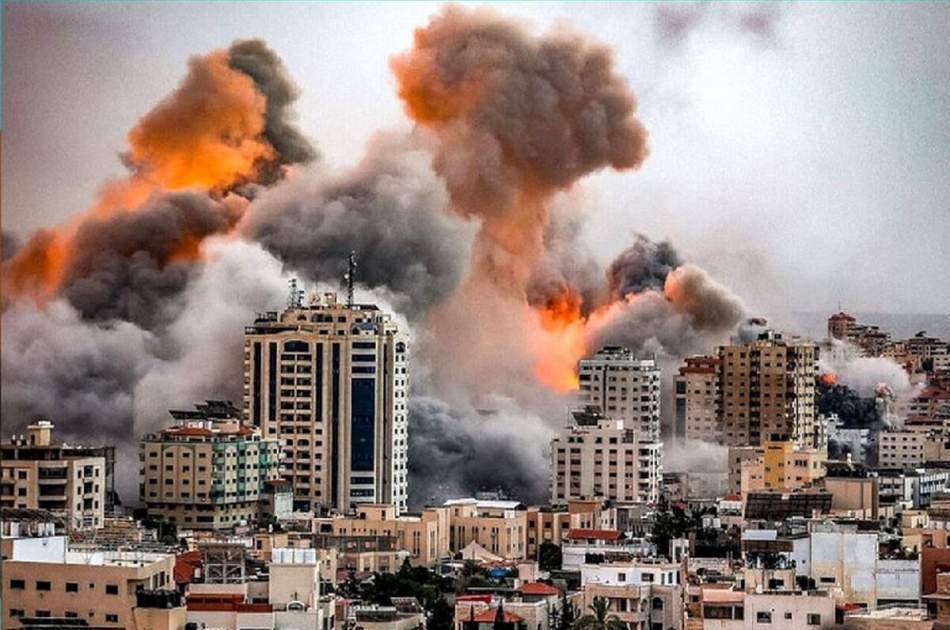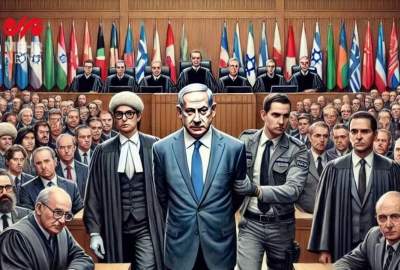The Israeli Channel 12 reported that the Israeli leaders see the possibility of negotiating with the Palestinian Islamic Resistance Movement (Hamas) only after reaching an agreement with Hezbollah.
Publish dateSunday 24 November 2024 - 10:16
Story Code : 301111
Afghan Voice Agency (AVA): The Israeli Channel 12 reported that a member of the negotiating team for the families of Israeli prisoners with Hamas stated during a meeting that negotiations regarding Israeli prisoners have slowed down after the appointment of Yisrael Katz as Minister of War.
According to the report, the families of the Israeli prisoners asked reporters about Katz's claim about progress in the negotiations. In response to questions, the prisoners' negotiator said that Katz's claim was false and that Hamas's position on ending the war had not changed.
The negotiator also stated that he was still ready to agree to the ceasefire agreement, which has been under discussion and consultation since last May, in stages.
In this regard, Israeli Prime Minister Benjamin Netanyahu has announced that he is against ending the war over prisoners.
The Israeli Channel 12 also reported that the regime's security establishment believes that reaching an agreement with Hamas will only be possible after concluding a ceasefire agreement with Hezbollah.
An official told Israeli Channel 12 that it is hoped that the agreement with Hezbollah will lead to progress in the first agreement, the agreement with Hamas.
Earlier, the Hebrew-language newspaper Haaretz reported that Benjamin Netanyahu has thwarted efforts to reach a prisoner exchange agreement at least three times in the past few months.
On the other hand, Khalil al-Hayyah, deputy head of the Hamas movement in the Gaza Strip, stated: If the Israeli aggression does not stop, why should the resistance, and Hamas in particular, return Israeli prisoners?
He added: Contacts are currently underway with some countries and mediators to advance the negotiations. We are ready to continue these efforts.
According to Hebrew media reports, the recent disagreements that have prevented a ceasefire agreement in Lebanon are due to Tel Aviv's insistence on excluding France from the agreement and from the international committee that will oversee its implementation. Tel Aviv's opposition, under the pretext of Paris's hostile policy towards it, is a reference to the tension that has arisen between them since September.
Macron had called for a halt to arms shipments to the Zionist regime and described Tel Aviv's actions in Gaza as genocide. The French government had twice blocked the participation of Israeli military companies in two exhibitions.
According to Western diplomats, the ceasefire will be in effect for 60 days before a decision is made on its continuation, and the question is what will happen after this period ends and a full ceasefire enters the stage.
Amos Hochstein, the US representative to Lebanon, recently traveled to Beirut and Tel Aviv in an effort to advance a ceasefire agreement between the two sides.
The Israeli army intensified its military operations against Hezbollah in Lebanon on September 23, and its forces launched ground operations in southern Lebanon a week later, but were met with fierce resistance from Hezbollah forces. Israeli warplanes continue their attacks on the southern suburbs of Beirut and southern Lebanon.
Hezbollah in Lebanon is also responding to the Zionist aggression with widespread missile and drone attacks on the north and center of the occupied territories.
According to the report, the families of the Israeli prisoners asked reporters about Katz's claim about progress in the negotiations. In response to questions, the prisoners' negotiator said that Katz's claim was false and that Hamas's position on ending the war had not changed.
The negotiator also stated that he was still ready to agree to the ceasefire agreement, which has been under discussion and consultation since last May, in stages.
In this regard, Israeli Prime Minister Benjamin Netanyahu has announced that he is against ending the war over prisoners.
The Israeli Channel 12 also reported that the regime's security establishment believes that reaching an agreement with Hamas will only be possible after concluding a ceasefire agreement with Hezbollah.
An official told Israeli Channel 12 that it is hoped that the agreement with Hezbollah will lead to progress in the first agreement, the agreement with Hamas.
Earlier, the Hebrew-language newspaper Haaretz reported that Benjamin Netanyahu has thwarted efforts to reach a prisoner exchange agreement at least three times in the past few months.
On the other hand, Khalil al-Hayyah, deputy head of the Hamas movement in the Gaza Strip, stated: If the Israeli aggression does not stop, why should the resistance, and Hamas in particular, return Israeli prisoners?
He added: Contacts are currently underway with some countries and mediators to advance the negotiations. We are ready to continue these efforts.
According to Hebrew media reports, the recent disagreements that have prevented a ceasefire agreement in Lebanon are due to Tel Aviv's insistence on excluding France from the agreement and from the international committee that will oversee its implementation. Tel Aviv's opposition, under the pretext of Paris's hostile policy towards it, is a reference to the tension that has arisen between them since September.
Macron had called for a halt to arms shipments to the Zionist regime and described Tel Aviv's actions in Gaza as genocide. The French government had twice blocked the participation of Israeli military companies in two exhibitions.
According to Western diplomats, the ceasefire will be in effect for 60 days before a decision is made on its continuation, and the question is what will happen after this period ends and a full ceasefire enters the stage.
Amos Hochstein, the US representative to Lebanon, recently traveled to Beirut and Tel Aviv in an effort to advance a ceasefire agreement between the two sides.
The Israeli army intensified its military operations against Hezbollah in Lebanon on September 23, and its forces launched ground operations in southern Lebanon a week later, but were met with fierce resistance from Hezbollah forces. Israeli warplanes continue their attacks on the southern suburbs of Beirut and southern Lebanon.
Hezbollah in Lebanon is also responding to the Zionist aggression with widespread missile and drone attacks on the north and center of the occupied territories.
avapress.net/vdcgqq9wqak9zq4.5jra.html
Top hits







